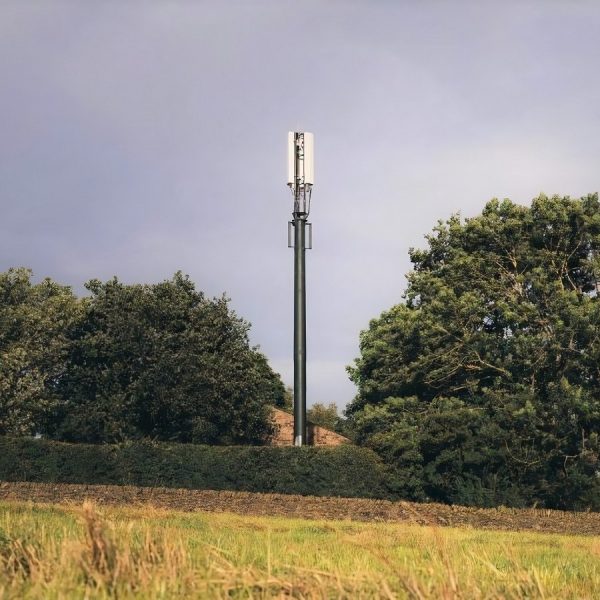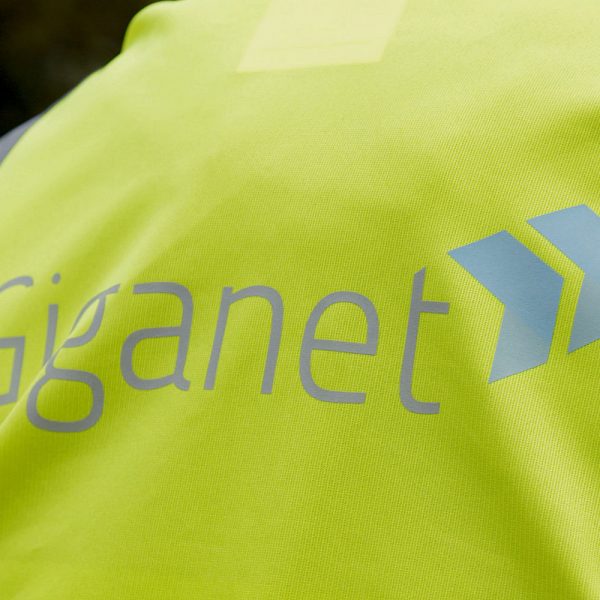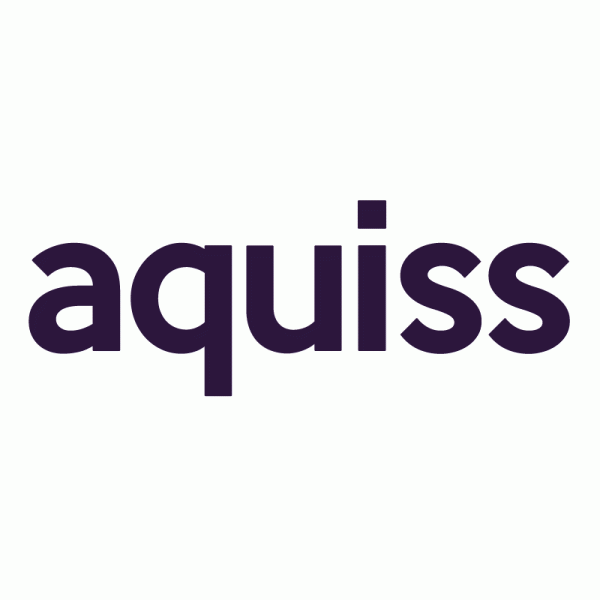Sponsored Links
UPDATE8 UK ISP BT and TalkTalk Win Judicial Review of the Digital Economy Act
Posted: 10th Nov, 2010 By: MarkJ
 Two of the country's largest internet access providers (ISP), BT Retail and TalkTalk UK, which combined account for nearly 10 Million broadband subscribers, have been GRANTED a Judicial Review of the controversial Digital Economy Act 2010 (DEA).
Two of the country's largest internet access providers (ISP), BT Retail and TalkTalk UK, which combined account for nearly 10 Million broadband subscribers, have been GRANTED a Judicial Review of the controversial Digital Economy Act 2010 (DEA).The DEA threatens to identify those "suspected" of unlawful ("illegal") copyright P2P File Sharing to Rights Holders for legal action and could lead to the blocking of legitimate websites, service speed restrictions, limits on open Wi-Fi usage or even account disconnection from your ISP.
The act was "rushed" through parliament prior to May 2010's General Election during the "wash-up" process. Many ISPs and consumer groups believe that this resulted in "insufficient scrutiny" of its far reaching rules and consequences. ISPs also questioned whether the new laws could damage "basic rights and freedoms" by contravening the EU's Privacy and Electronic Communications Directive.
TalkTalk's Executive Director, Andrew Heaney, commented:
"We are very pleased that the Court has recognised that our concerns about the copyright infringement provisions in the Digital Economy Act should be considered in a full hearing. The Act was rushed through Parliament in the ‘wash-up’ with only 6% of MPs attending the brief debate and has very serious flaws.
The provisions to try to reduce illegal filesharing are unfair, won’t work and will potentially result in millions of innocent customers who have broken no law suffering and having their privacy invaded.
We look forward to the hearing to properly assess whether the Act is legal and justifiable and so ensure that all parties have certainty on the law before proceeding."
"We are very pleased that the Court has recognised that our concerns about the copyright infringement provisions in the Digital Economy Act should be considered in a full hearing. The Act was rushed through Parliament in the ‘wash-up’ with only 6% of MPs attending the brief debate and has very serious flaws.
The provisions to try to reduce illegal filesharing are unfair, won’t work and will potentially result in millions of innocent customers who have broken no law suffering and having their privacy invaded.
We look forward to the hearing to properly assess whether the Act is legal and justifiable and so ensure that all parties have certainty on the law before proceeding."
It's understood that the High Court Judge has granted three out of BT and TalkTalk's four grounds (details below - courtesy of the Open Rights Group (ORG)), although precise details remain unclear. The result means that a significant part of the act must now have to be put through new scrutiny, which will cause further delays to the whole process.
The four groundsHowever a Judicial Review is no guarantee that any changes will be made. Standard 'political will' dictates that there must be some adjustment, though people should remember that act's can get worse as well as better when opened up to fresh debate.
* Firstly the Government should have notified the European Commission under the Technical Standards Directive which they failed to do.
* The two ISPs also claimed that the provisions were not compatible with the E-Commerce Directive which provides that ISPs cannot be held liable for data going though their networks.
* Thirdly, ISPs have to deal with data that is not specifically permitted under the Privacy and Electronic Communications Directive.
* The fourth ground [Judge's decision still pending] dealt with the disproportionate impact of the provisions on ISPs and in particular referred to the opinion of the European Data Protection Supervisor, Peter Hustinx. He concluded that generic three strikes regimes are a disproportionate measure.
UPDATE 4:55pm
New comment from the British Phonographic Industry (BPI), which is a supposedly representative voice of the UK recorded music business (Rights Holders).
A BPI Spokesman told the BBC News:
"It's disappointing that a couple of ISPs are trying to frustrate this and resist any action being taken to reduce illegal file-sharing on their networks. We continue to believe that their case is misconceived and will fail. The act remains in full force and we will continue to work with government, Ofcom and other stakeholders to implement it."
"It's disappointing that a couple of ISPs are trying to frustrate this and resist any action being taken to reduce illegal file-sharing on their networks. We continue to believe that their case is misconceived and will fail. The act remains in full force and we will continue to work with government, Ofcom and other stakeholders to implement it."
The act itself has not yet come into "full force" as claimed by the BPI because Ofcom has yet to finalise the mechanisms behind how it should work. This process is not due to be completed until March 2011, which is now likely to be delayed again.
UPDATE 5:02pm
The CTO of ISP Timico UK, Trefor Davies, has also noted THIS reply to TalkTalk's original petition against the Digital Economy Act (DEA).
Government response
It is clear that online copyright infringement inflicts considerable damage on the UK’s creative economy including music, TV and film, games, sports and software. Industry estimates place this harm at £400m pa.
The Digital Economy Act includes a number of measures to tackle the problem and we expect these to be successful in significantly reducing online copyright infringement. However this is an area of rapid technological change and developing consumer behaviour. The Act therefore includes a reserve power to introduce further “technical” measures if the initial measures do not succeed. These technical measures would limit or restrict an infringers’ access to the internet. They do not include disconnection.
It is clear that online copyright infringement inflicts considerable damage on the UK’s creative economy including music, TV and film, games, sports and software. Industry estimates place this harm at £400m pa.
The Digital Economy Act includes a number of measures to tackle the problem and we expect these to be successful in significantly reducing online copyright infringement. However this is an area of rapid technological change and developing consumer behaviour. The Act therefore includes a reserve power to introduce further “technical” measures if the initial measures do not succeed. These technical measures would limit or restrict an infringers’ access to the internet. They do not include disconnection.
It should be noted that the government has always made a distinction, in political speak, between "account suspension" and "disconnection". As a result this shouldn't be taken to mean that nobody will be cut-off from the internet because the DEA text still clearly states "suspends the service provided to a subscriber" in its text.
UPDATE 5:15pm
TalkTalk has now issued a more detailed summary.
TalkTalk Statement (blog)
"We are very pleased to report that Mr Justice Wyn Williams announced that he was granting our request, jointly lodged with BT, for a judicial review of the parts of the Digital Economy Act relating to the obligations on ISPs which attempted to tackle illegal filesharing.
We had submitted our application on the basis that the Act was illegal and disproportionate in a number of ways. The Government had argued that our application was groundless. The judge today has effectively decided that there is a case to answer. We remain confident that we will win in the full hearing.
It has been some while since this topic has been in the news so it is worth recapping our concerns.
Our central one is that the obligations won’t work in reducing illegal filesharing (they only tackle peer-to-peer filesharing and people will switch to other undetectable measures), will be hugely expensive (the previous government underestimated many of the costs) and most of all will be grossly unfair (mainly since the subscriber of a connection is effectively held responsible for the activities of other users of their connection and if they want to challenge rightsholders claims the subscriber will be presumed guilty unless they can prove themselves innocent).
Our other worry is the alarming lack of proper scrutiny the original Bill received in Parliament (which is probably one of the reasons that it was so flawed). Back at the start of 2010, as the Digital Economy Bill was being rushed into law, we were appalled by the ability of big music and film companies to influence government and by the absence of any proper debate or scrutiny by MPs. Only 6% of MPs turned up for the very brief debate on the bill in its final stages and the other important Parliamentary processes were bypassed in the ‘wash-up process’ (the period just before a general election when any outstanding uncontentious bills are quickly passed into law).
We are not against trying to reduce illegal filesharing but it must be done in a fair and legal way that properly respects consumers’ interests. We are pleased that today the DCMS has announced an inquiry into protecting copyright online and the effectiveness of the DE Act.
So we are extremely happy with the High Court’s decision and we now look forward to the full judicial review."
"We are very pleased to report that Mr Justice Wyn Williams announced that he was granting our request, jointly lodged with BT, for a judicial review of the parts of the Digital Economy Act relating to the obligations on ISPs which attempted to tackle illegal filesharing.
We had submitted our application on the basis that the Act was illegal and disproportionate in a number of ways. The Government had argued that our application was groundless. The judge today has effectively decided that there is a case to answer. We remain confident that we will win in the full hearing.
It has been some while since this topic has been in the news so it is worth recapping our concerns.
Our central one is that the obligations won’t work in reducing illegal filesharing (they only tackle peer-to-peer filesharing and people will switch to other undetectable measures), will be hugely expensive (the previous government underestimated many of the costs) and most of all will be grossly unfair (mainly since the subscriber of a connection is effectively held responsible for the activities of other users of their connection and if they want to challenge rightsholders claims the subscriber will be presumed guilty unless they can prove themselves innocent).
Our other worry is the alarming lack of proper scrutiny the original Bill received in Parliament (which is probably one of the reasons that it was so flawed). Back at the start of 2010, as the Digital Economy Bill was being rushed into law, we were appalled by the ability of big music and film companies to influence government and by the absence of any proper debate or scrutiny by MPs. Only 6% of MPs turned up for the very brief debate on the bill in its final stages and the other important Parliamentary processes were bypassed in the ‘wash-up process’ (the period just before a general election when any outstanding uncontentious bills are quickly passed into law).
We are not against trying to reduce illegal filesharing but it must be done in a fair and legal way that properly respects consumers’ interests. We are pleased that today the DCMS has announced an inquiry into protecting copyright online and the effectiveness of the DE Act.
So we are extremely happy with the High Court’s decision and we now look forward to the full judicial review."
UPDATE 11th November 2010
Ofcom is apparently expected to publish its final code, or at least the conclusion to its first of three consultations, before the end of this week. The regulator doesn't have much choice right now as it's working to a tight deadline, although it's not directly responsible for whether or not the act should now be delayed. Elsewhere we have some more comments to publish.
Jim Killock, Executive Director of the Open Rights Group (ORG), said:
"We are extremely glad that judges will be taking a look at the Digital Economy Act, which we believe breaches people’s rights to freedom of expression and privacy. The Act is a mess and badly needs repealing. Judicial Review may give the government the chance to drop this heavy-handed approach to copyright enforcement."
"We are extremely glad that judges will be taking a look at the Digital Economy Act, which we believe breaches people’s rights to freedom of expression and privacy. The Act is a mess and badly needs repealing. Judicial Review may give the government the chance to drop this heavy-handed approach to copyright enforcement."
Deborah Prince, Head of Legal Affairs at Which?, said:
"Instead of challenging digital initiatives, it would be good if all stakeholders – rights holders, ISPs and the legal profession - came together to make the process of graduated response advocated by the Digital Economy Bill (DEB) work.
The DEB approach could benefit all concerned. Rights holders could get protection, consumers could get better education about file-sharing, and the courts could only be used for persistent offenders."
"Instead of challenging digital initiatives, it would be good if all stakeholders – rights holders, ISPs and the legal profession - came together to make the process of graduated response advocated by the Digital Economy Bill (DEB) work.
The DEB approach could benefit all concerned. Rights holders could get protection, consumers could get better education about file-sharing, and the courts could only be used for persistent offenders."
We have also added some extra details about the "four grounds" that the judge ruled on to our original news story above.
UPDATE 11th November 2010 - 08:06am
The CTO of business ISP Timico UK, Trefor Davies, has blogged some additional information concerning costs. At present the act will only target fixed line broadband providers with over 400,000 subscribers, although Davies warns that the cost estimates could spiral to hundreds of £millions if that threshold were to be lowered and encompass smaller providers.
Trefor Davies added:
Note the estimated Government figures for costs to industry of implementing the DEAct are as follows:
* Cost (upfront) to ISPs (annualised): £8m per year
* Costs (ongoing) to ISPs: £8-25m per year
* Annual average costs to mobile operators: £19m per year
* Annual costs of sending CIRs: £3m per year
The BT/TalkTalk submission as part of the request for Judicial Review suggested that the real costs were more in the region of £100m pa excluding the potential costs of implementing website blocking and other technical measures.
Assuming that the threshold will be lowered the total cost of implementing the Act could run into hundreds of millions of pounds a year, 75% of which, as it stands, would have to be paid for by the Rights Holders.
Note the estimated Government figures for costs to industry of implementing the DEAct are as follows:
* Cost (upfront) to ISPs (annualised): £8m per year
* Costs (ongoing) to ISPs: £8-25m per year
* Annual average costs to mobile operators: £19m per year
* Annual costs of sending CIRs: £3m per year
The BT/TalkTalk submission as part of the request for Judicial Review suggested that the real costs were more in the region of £100m pa excluding the potential costs of implementing website blocking and other technical measures.
Assuming that the threshold will be lowered the total cost of implementing the Act could run into hundreds of millions of pounds a year, 75% of which, as it stands, would have to be paid for by the Rights Holders.
One reason for this is that the act could easily end up hitting Universities too, with the University of London having 135,000 students. The definition of who comes into scope is somewhat vague; a University might be described as both ISP (it provides a service and allocates IP addresses), a subscriber (it takes services off another ISP – JANET) and a Communications provider. The latter would leave them out of scope but the first two brings them in.
UPDATE 11th November 2010 - 12:48pm
Response from ISP Entanet UK.
Darren Farnden, Head of Marketing at Entanet, said:
"It's about time these objections are taken seriously and the High Court is right to take action. The DEA was blatantly rushed through without adequate scrutiny and discussion with the Internet industry who will ultimately shoulder responsibility for this.
We've voiced our objections to its introduction since the start of the year as it is a regressive bill that will inevitably cause more harm than good. Innocent users will continue to be wrongly accused and persistent offenders will go underground. There will be only a minimal reduction in illegal file sharing while the real offenders persist, which won't help the entertainment industry at all.
We hope that this review will result in the current legislation being thrown out and new and more balanced and manageable proposals being put forward. Like many communications providers we’d be only too glad to contribute to that debate and would hope we'd be invited to."
"It's about time these objections are taken seriously and the High Court is right to take action. The DEA was blatantly rushed through without adequate scrutiny and discussion with the Internet industry who will ultimately shoulder responsibility for this.
We've voiced our objections to its introduction since the start of the year as it is a regressive bill that will inevitably cause more harm than good. Innocent users will continue to be wrongly accused and persistent offenders will go underground. There will be only a minimal reduction in illegal file sharing while the real offenders persist, which won't help the entertainment industry at all.
We hope that this review will result in the current legislation being thrown out and new and more balanced and manageable proposals being put forward. Like many communications providers we’d be only too glad to contribute to that debate and would hope we'd be invited to."
As it stands now there will be a further court hearing in February 2010, which effectively puts the act into a state of limbo. However Ofcom will continue to construct the law's mechanisms and it's debatable whether this Judicial Review will provide any meaningful changes.
UPDATE 13th November 2010
BT/TalkTalk win on the fourth grounds too.
https://www.ispreview.co.uk/story/2010/11/13/uk-judge-grants-isps-fourth-ground-for-judicial-review-of-digital-economy-act.html
Search ISP News
Search ISP Listings
Search ISP Reviews
Latest UK ISP News








Cheap BIG ISPs for 100Mbps+
150,000+ Customers | View More ISPs
Cheapest ISPs for 100Mbps+
Modest Availability | View More ISPs
Latest UK ISP News
Helpful ISP Guides and Tips
Sponsored Links
The Top 15 Category Tags
- FTTP (5515)
- BT (3514)
- Politics (2537)
- Openreach (2297)
- Business (2262)
- Building Digital UK (2244)
- FTTC (2043)
- Mobile Broadband (1973)
- Statistics (1788)
- 4G (1664)
- Virgin Media (1619)
- Ofcom Regulation (1461)
- Fibre Optic (1395)
- Wireless Internet (1389)
- FTTH (1381)
Sponsored
Copyright © 1999 to Present - ISPreview.co.uk - All Rights Reserved - Terms , Privacy and Cookie Policy , Links , Website Rules

































